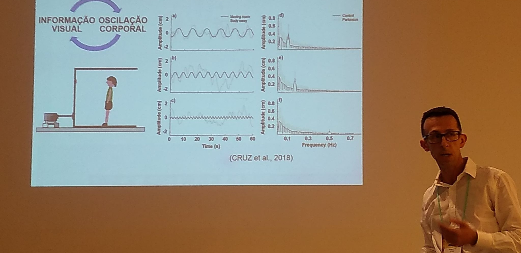PeerJ homepage About PeerJ Submit your article
PeerJ congratulates Caio Ferraz Cruz, winner of the PeerJ Award for Best Oral Presentation at the 18th Congress of Brazilian Biomechanics. The Congress was held May 1-4, 2019 in Manaus, Brazil.
Caio presented results concerning the influence of visual information on postural control in Parkinson’s disease. The PeerJ Award, created to benefit students and early career researchers, includes a free publication in PeerJ upon submission and acceptance through our normal peer review system. We are very pleased to recognize Caio for his rigorous scientific effort. Please see below for an interview about his research and future plans …

Caio presenting his research at the 18th Brazilian Congress of Biomechanics in Manaus, Brazil.
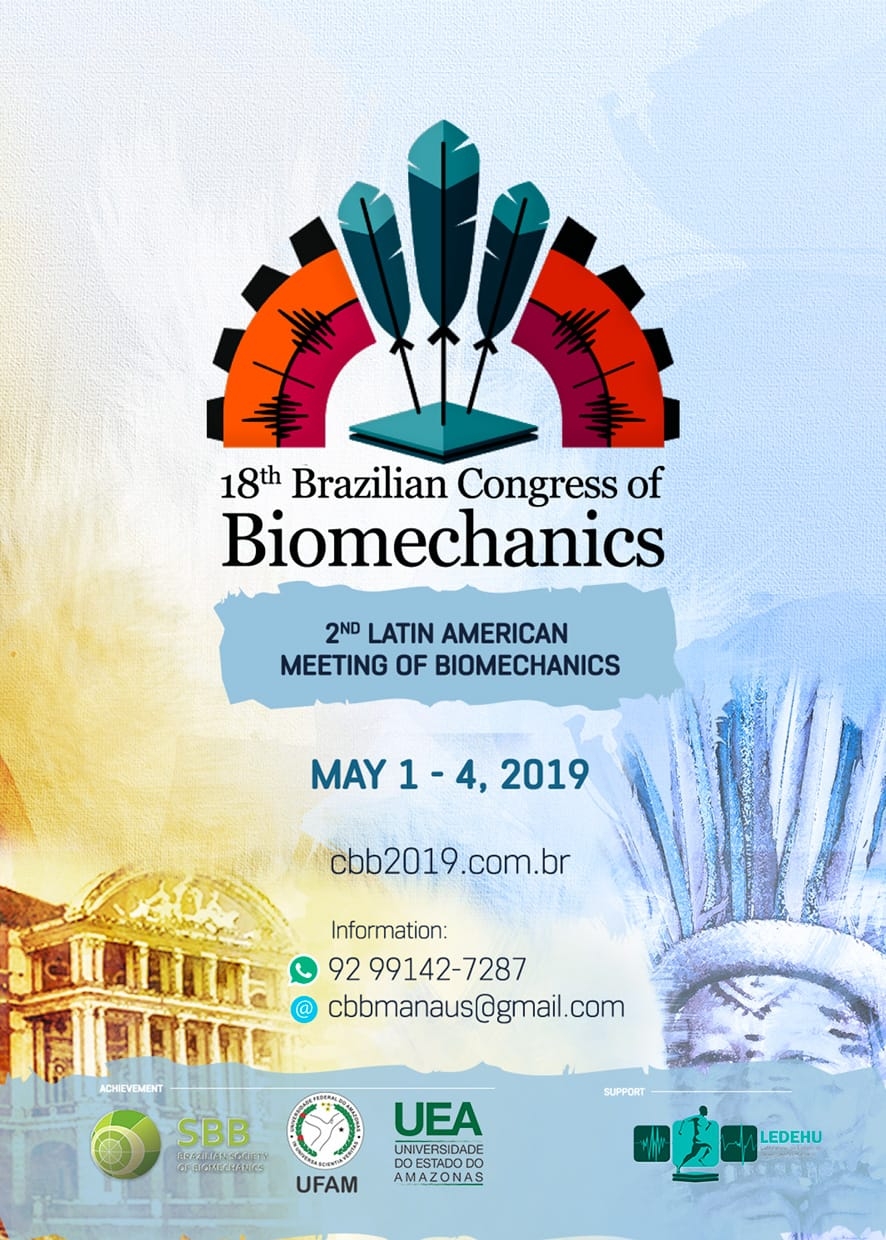
-
Can you tell us a bit about yourself and your research interests?
I have a bachelor’s degree in physical education, a master’s degree in biomedical engineering, and I recently completed my Ph.D. in health sciences. I currently work within the School of Arts, Sciences and Humanities at University of São Paulo, Brazil. I am also a member of the Movement Analysis Laboratory of the Institute of Physical Activity and Sport Sciences at Cruzeiro do Sul University. I have expertise in adapted physical activity, biomechanics, motor behavior, aging, and swimming. My research interests are resistance training for older people and motor control of people with neuropathology, especially Parkinson’s disease.
-
Can you briefly explain the research you presented at CBB 2019?
At the congress, I presented one of my thesis studies demonstrating that people in the early stages of Parkinson’s disease are able to intentionally alter the influence of visual information on postural control, suggesting that they have and/or allocate attentional resources to promote changes in their postural orientation.
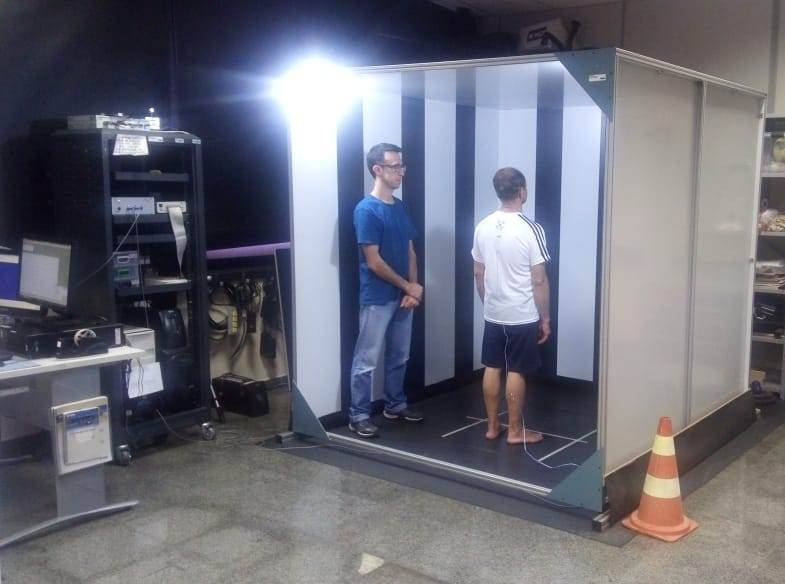
Observing a participant inside the moving room for manipulation of visual information during upright and quiet posture. Laboratory of Movement Analysis, Cruzeiro do Sul University, São Paulo, Brazil.
We used the moving room paradigm to manipulate visual information during upright posture. We analyzed the visuomotor coupling when participants (with Parkinson’s disease and control) were unaware of visual manipulation and then when they had knowledge of visual manipulation and were asked to resist the influence of such manipulation. That is an innovative result considering that the literature suggests that people with Parkinson’s disease rely more on visual information to control their movements and that they have limited attentional resources. I am very grateful to my advisor, Professor José Barela, who is of fundamental importance in the development of this work, which was financed in part by the Coordenação de Aperfeiçoamento de Pessoal de Nível Superior – Brasil (CAPES).
-
What are your next steps? How will you continue to build on this research?
In future research, I intend to continue investigating sensorimotor coupling in people with Parkinson’s disease in other situations, for instance, when the participant must intentionally move together with the stimulus, the effect of medication, the coordination of the body segments during the postural control and the manipulation of other sensory information, such as the somatosensory. Perhaps I will develop these topics in a postdoctoral.
I would like to thank the Brazilian Society of Biomechanics for its role in promoting actions to support young researchers and for organizing a traditional congress in the area, which attracts participants from Brazil and other countries. I am also grateful to PeerJ for the opportunity to share my research.
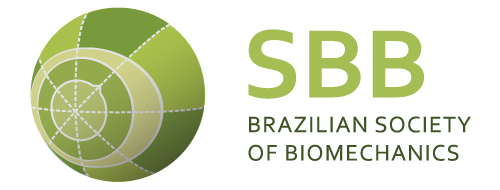
View related PeerJ research in neuroscience and kinesiology.
About: PeerJ is an Open Access publisher of seven peer-reviewed journals and a preprint server. PeerJ’s mission is to help the world efficiently publish its knowledge. All works published by PeerJ are Open Access and published using a Creative Commons license (CC-BY 4.0).
PeerJ – the Journal of Life and Environmental Sciences is the peer-reviewed journal for Biology, Medicine and Environmental Sciences. PeerJ also publishes PeerJ Computer Science, and five newly launched PeerJ Chemistry journals.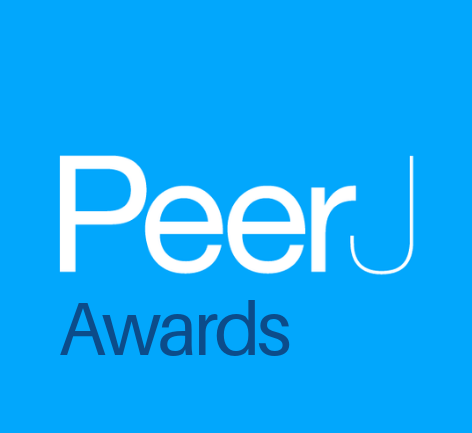
By teaming up with a number of conferences to offer these awards, we are making it as easy as possible for organizers to reward excellence in science, support students and early career researchers, and signal to the wider research community that open science is better science. Learn more here and get in touch if you are a conference organizer and are looking to offer a ‘Best Contribution’ award for open science – sierra.williams@peerj.com

